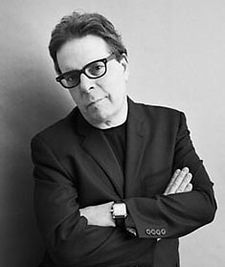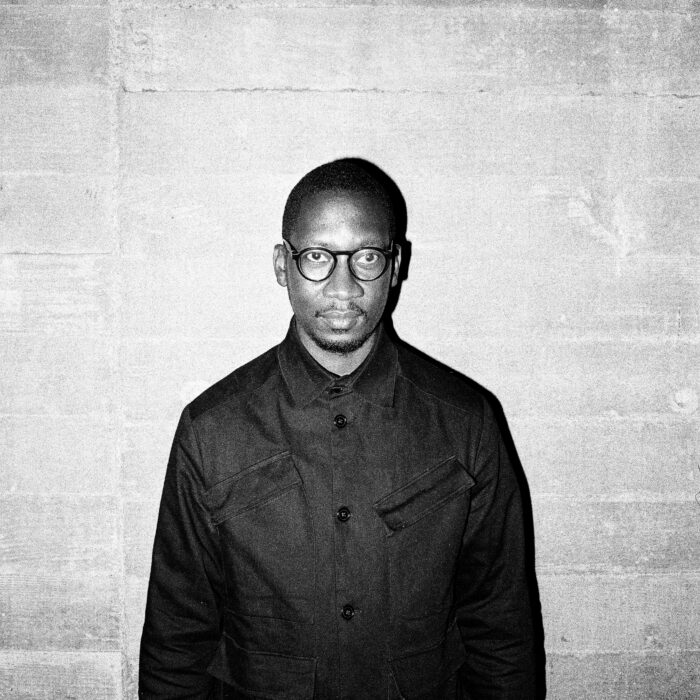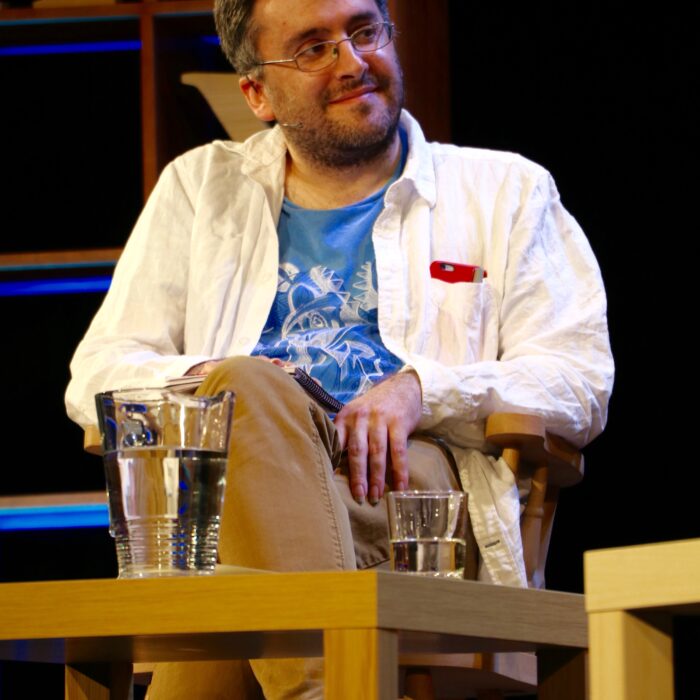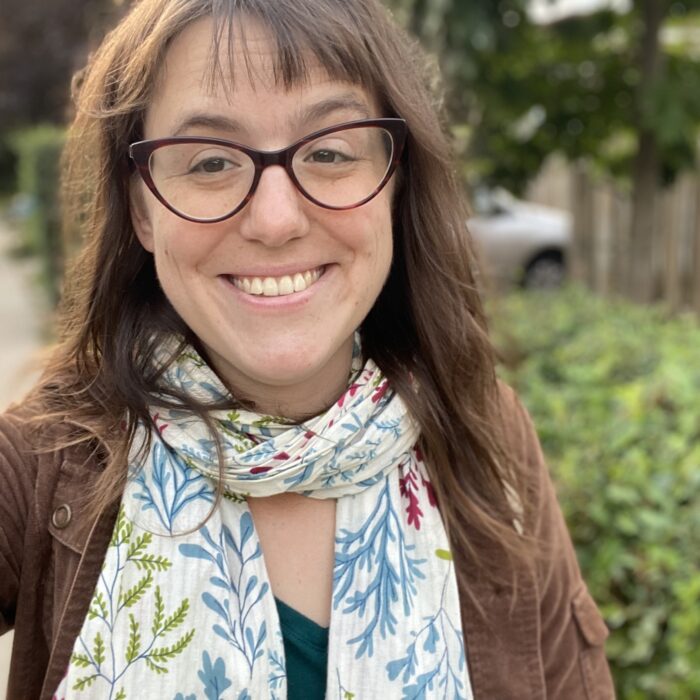You have no items in your cart. Want to get some nice things?
Go shoppingDouglas Kennedy is the author of twelve novels, including the international bestsellers The Big Picture, The Pursuit of Happiness, Leaving the World and The Moment. His latest novel, The Heat of Betrayal, is now available in English and in French as Mirage (with an American publication in Feb. 2016 under the title, The Blue Hour). He is also the author of three highly-praised travel books. Several of his novels have been filmed, including The Big Picture (starring Romain Duris and Catherine Deneuve) and The Woman in the Fifth (with Ethan Hawke and Kristen Scott Thomas). He is currently working on his thirteenth novel. More than 14 million copies of his books have been sold worldwide and his work has been translated into 22 languages.
We sat down in his Paris apartment to discuss his body of work, the importance of maintaining curiosity and living an interesting life. Born in Manhattan, he has lived in London, Paris, Dublin, Berlin, Montreal and other cities. After 34 years living in Europe, he now divides his time between Manhattan and Maine, but he is always travelling. His books have the pace of thrillers with an emotional core. He was a director of The Abbey’s Peacock Theatre in Dublin before moving to London, which he credits with giving him his start, first as a journalist and then as a travel writer and novelist.
Kennedy: How a book begins for me is strange. I never underestimate the unconscious in fiction and how it interplays. I’m writing a new book now and I remember going through five different ideas in my head and trying to live with them. It’s like trying to get involved with somebody or getting involved with somebody and then just seeing if it, as they say in Hollywood, “has legs.” That’s the same with an idea because you’re going to be living with it for––my pattern is––every two years.
I am a kind of fanatical traveller. I think I started doing that in my head in childhood, just to get away from a very difficult family situation, which I never thought, Oh my god, that was horrible. My parents had about as bad a marriage as it comes. But I’m very grateful to them on a certain level because it made me actually very independent very young.
Litro:Many of your books concern characters who experience a rupture which allows them to look at others or themselves in a new light. What was an important rupture for you which may have impelled you to become a writer?
Kennedy:Alright, I’ll say this for the first time here since you’ve asked. When I was thirteen years old, one day at the apartment in New York, I came home from school. My father was always travelling and he was running a mine in South America. And also, as I discovered later, working for the CIA destabilising the Allende regime. And the phone rang one day and a guy got on and he was drunk. And he said, (I don’t want to bring in the bad language) “Are you that son of a bitch, Tom Kennedy’s son?” I said, “Who’s this?” He said, “I’m the husband of the woman your father is fucking right now.”
(Kennedy’s eyebrows rise.) That was the start of something.
Yes, that’s something that I came back to much later while doing the talking cure, using that Jungian expression. What was interesting was I wasn’t horrified. Actually, I sort of understood it because my mother was impossible. But also it was sort of…it was a horrendously cruel thing for an adult to do. But also, it was all out of fear. I sort of worked that out much later in adult life. When I was well into my forties, when I was thinking about it and talking about it.
But I think it also gave me something that is everywhere in my fiction, which is the notion of secrets. The Heat of Betrayal is a novel about secrets and the fact that everybody has this kind of cut off space which they don’t really share with others and occasionally gets revealed. And how that’s experienced by someone somewhat adjacent to this, a child or a spouse or a partner, whatever. How you deal with that is very interesting when that is revealed.
Litro:What is your advice to writers?
Kennedy: I’ve often said this to writers. Ask questions about other people, endlessly. I remember one of my ex-petite amies here, she said to me into the beginning of our little adventure, she said, “Tu pose trop de questions. Je ne comprends pas. Pourquoi?” “C’est de recherche.”
Litro: Some authors’ work requires an element of physical bravery–Hemingway, Mailer–but your writing seems to require a great deal of emotional courage. To write yourself so convincingly into the space of a woman’s mind you must have a very strong anima animus.
Kennedy: Thank you and thank you for saying that. I think you’ve hit on something crucial, which is that I’ve never really written aroman à clef, you know, something directly from my experience. There are two short stories that are somewhat from my life, in the short story collection. But I’ve never written anything directly. And yet again, you are always writing about yourself. Even if you’re not writing about something you’ve actually lived, you’re dealing with your own internal weather system, as I’ve said, and we all have one. And you’re also dealing with the things that keep you up at night, the things that worry you, the things you haven’t been able to get right. Your fears. And everyone has fears. And they all come into play.
It was funny when I started getting successful as an novelist, someone asked me this. And I said, “Well, I think I write my own contradictions and then I discovered that they’re shared by a lot of people. And that what I was writing about really were things that most people lived with in one way or another.
When I was writing The Big Picture–this is something that an English journalist said to me at the time–she had just had two kids and she said, “finally someone is writing about just the hell of white nights and the way the whole dynamic of a couple changes when you have children. The sort of feeling of entrapment that you have.
On his time in Paris:
Paris just always struck me as a place where–if you could actually begin to understand the culture in a proper way–not in an expatriate American way. Not where you have some French friends, but you’re kind of living in an Anglophone bubble. I guess because of my books and because I insisted on mastering the language, I worked very hard at it.[…] I think also there’s just something in my sensibility that seems to work [in France].
Litro: You’ve received the Chevalier de l’Ordre des Arts et Lettres. You’re one of France’s best-selling novelists. Why do you think your works have translated so well to the French readership?
Kennedy: I think there are a couple of things. Writers work in different cultures for reasons that are frequently mysterious. I think what happened here was that I am able to bring in proper narrations and the French like that. Big stories which are very much about modern anxiety and the way we live now, and I do it in a way where, one, you turn the page, but also you think. And they liked that immediately.
On his time in London:
London is wonderful. Culturally, it’s absolutely extraordinary. I had a very good moment where there was a lot of journalism there. It was the last great golden age of London journalism and I got published and I was able to travel the world. I found it a lot more fun than New York because it didn’t take itself so seriously. It wasn’t so self-important. And the English–I said this in The Special Relationship– “Americans believe that life is serious, but not hopeless. And Brits believe that life is hopeless, but not serious.”
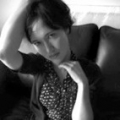
About Mia Funk
Mia Funk, Mia has received many awards & nominations, including a Prix de Peinture (Salon d’Automne de Paris), Thames & Hudson Pictureworks Prize, Sky Arts Portrait Artist of the Year, KWS Hilary Mantel Short Story Prize, Doris Gooderson Prize, Aesthetica Magazine's Creative Works, Momaya Prize & Celeste Prize. Her paintings have been featured on radio and television, at group shows at the Grand Palais, and are held in several public collections, including the Dublin Writers Museum. She is currently working on portraits for the American Writers Museum, completing a novel and a collection of linked short stories.

